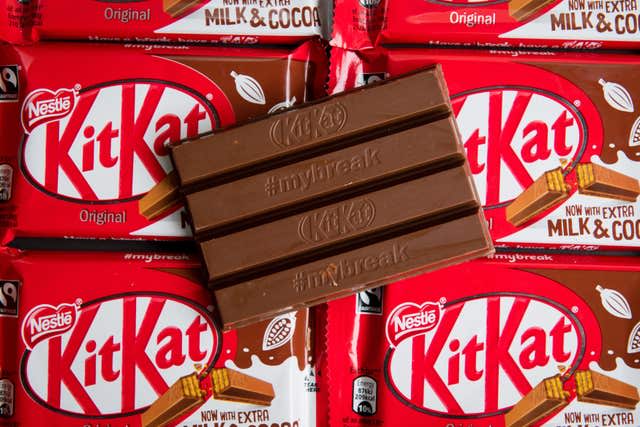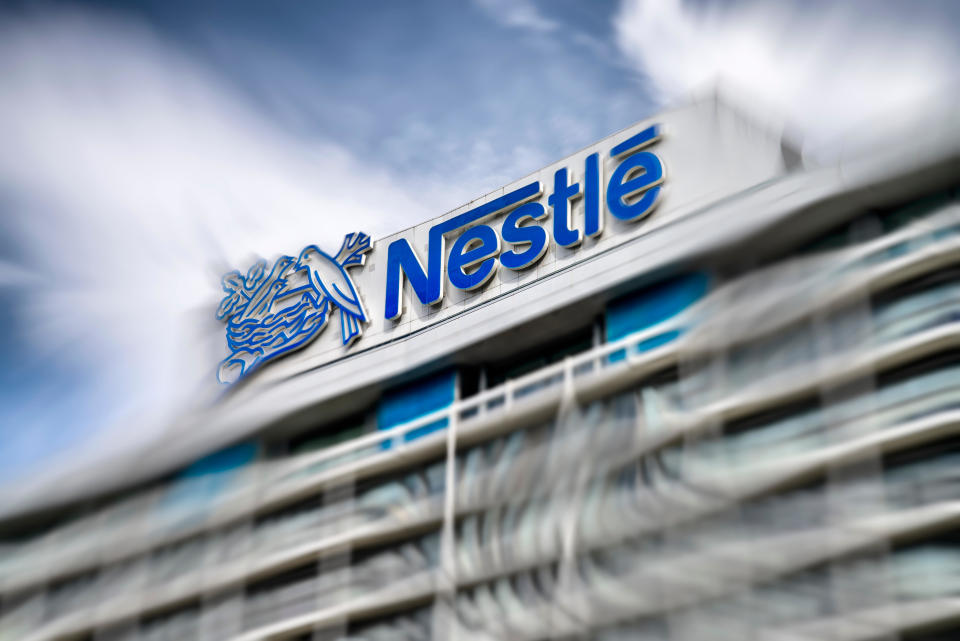Shareholder activists call on Nestle to tackle reliance on unhealthy food sales
Shareholder activists are calling on Nestle to reduce its reliance on selling unhealthy food products containing high levels of salt, sugar and fats.
A coalition of shareholders has filed a resolution challenging the food giant to improve its impact on consumers’ health, which will be put to a vote at the annual general meeting on April 18.
It comes as more than 50% of Nestle’s sales in 2023 were products with a Health Star Rating (HSR) – a nutrient profiling system used in some countries – below the healthier threshold of 3.5 out of five, according to the firm’s own figures.
The coalition, led by responsible investment charity ShareAction, said they are concerned over regulatory, reputational and legal risks as well as public health impacts.
The resolution calls for the board to prepare a report each financial year on how the company performed in areas such as sustainable development and social issues.
This would include sharing the firm’s food and drink sales figures according to their healthfulness.
It also asks Nestle to implement internationally accepted standards that define healthy food rather than deviating from credible guidelines.
Catherine Howarth, chief executive at ShareAction said: “Nestle is the biggest food company in the world and has an enormous influence on billions of people’s diets and lives through the products it makes, advertises and sells to us.
“While the company claims in its mission statement that its products have ‘the power to enhance lives’, in reality, three-quarters of Nestle’s global sales are unhealthy products containing high levels of salt, sugar and fats.
“As Nestle has consistently failed to set out how it will shift the balance of its sales towards healthier food options, concerned investors have been left with no option but to bring forward a resolution at the company’s AGM in April.
“Any move away from sales of unhealthy products by Nestle will inevitably support healthier communities all over the world and in the long-term help economies too.”

Investors with 1.68 trillion US dollars (£1.31 trillion) in assets under management, including Legal and General Investment Management (LGIM), Candriam, and La Francaise Asset Management, are supporting the resolution.
In September, Nestle published a new nutrition target to increase sales from nutritious products by 50% by 2030.
But the resolution noted that this is “simply in line with its overall growth guidance” of 4-6% per year, which would see sales of less healthy products increase as well.
The resolution also said that Nestle included some products in the “nutritious” category where the HSR does not apply.
It cited the example of coffee as well as infant food and milk formula for children aged over 12 months, which is often not recommended by health professionals.
“This enables the company to meet its healthier food sales target solely by increasing the sales of these products and prevents shareholders from correctly assessing the applicable risks,” the resolution said.
Maria Larsson Ortino, LGIM’s senior global ESG manager, said: “There is a clear link between a poor diet and chronic health conditions, such as obesity, heart disease and diabetes.

“As a long-term investor, LGIM believes that healthcare costs and decreased productivity have significant negative consequences on our clients’ assets across multiple sectors.
“Following Nestle’s health target announced last year, we publicly noted that we were disappointed that the Company had not taken the opportunity to set a specific, measurable and proportional target to increase sales from products that meet healthy thresholds.”
“Since the publication of the target, we have had additional engagements with Nestle but consider the dialogue to have come to an impasse.
“We therefore deemed the next appropriate step to be to co-file this shareholder proposal. We want to press home to the Company, and to the food and beverage sector as a whole, the importance we place on nutrition.”
A Nestle spokesperson said: “We appreciate the constructive dialogue with ShareAction and the investor coalition over recent years, so this resolution is disappointing and counterproductive.
“ShareAction are targeting the wrong company. We are already moving and more would be accomplished by asking other firms to level up.”
Nestle said the assertion that three-quarters of its sales come from unhealthy products is “wrong”, saying more nutritious and specialised nutrition products have risen from 57% to 59% of global sales.
“The numbers are going in the right direction,” it said.
“While we take note of ShareAction’s perspective, we disagree with the notion that we should aim to limit growth in specific areas of our portfolio. A proportional target is counterproductive to our value creation model.”

 Yahoo Finance
Yahoo Finance 